The pain and sadness of a Columbine killer's mother
- Published
"I'm just so sorry for what Dylan did": Sue Klebold
The Columbine High School attack was 17 years ago, but remains etched into the consciousness both in the US and around the world. After years of silence, the mother of one of the two killers has been speaking to BBC Newsnight's Kirsty Wark.
"The hardest part to understand was kids killing kids."
That quote from a student at Columbine High School is one of several set into the beautiful wall hewn from Jefferson County red sandstone which circles the Columbine memorial like an embrace.
The memorial which sits in the shadow of the Rocky Mountains pays tribute to each of the 12 students who were killed, and the teacher who was murdered as he tried to protect them.
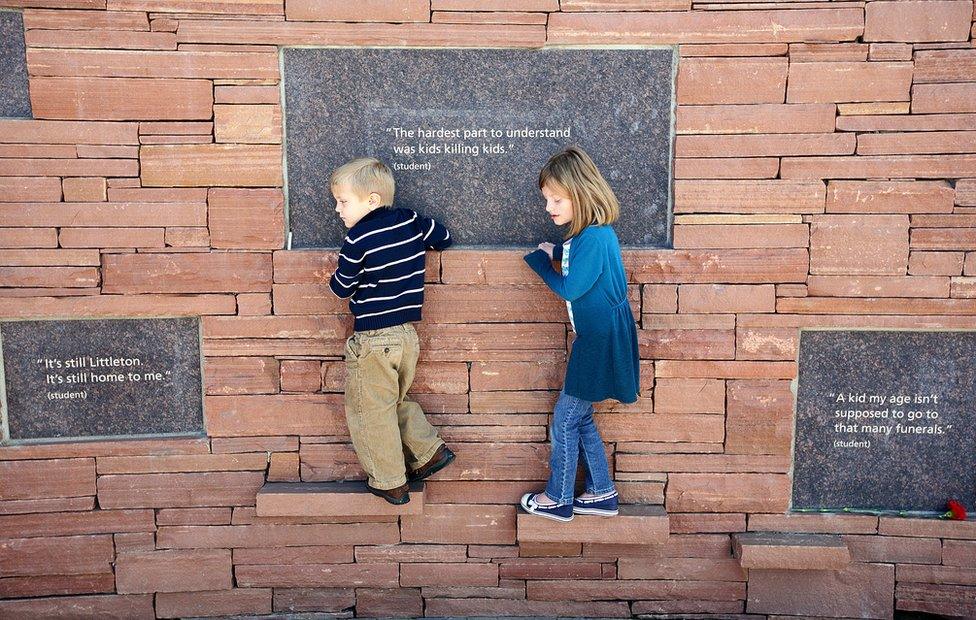
"What I do is I sit there and in my head I talk to the kids and to the teacher who is there, without the rest of the world, without parents, without lawyers, community," says Sue Klebold, the mother of Dylan Klebold who, along with Eric Harris, set out to blow up the whole school on 20 April 1999.
"I just want them to know that I am thinking about them. And I will always think about them."
Sue Klebold's composure left her as she spoke to me about the students that her son had killed.
For the last 17 years, she has had to live with the trauma of that day - of knowing the son she loved committed such an atrocity.
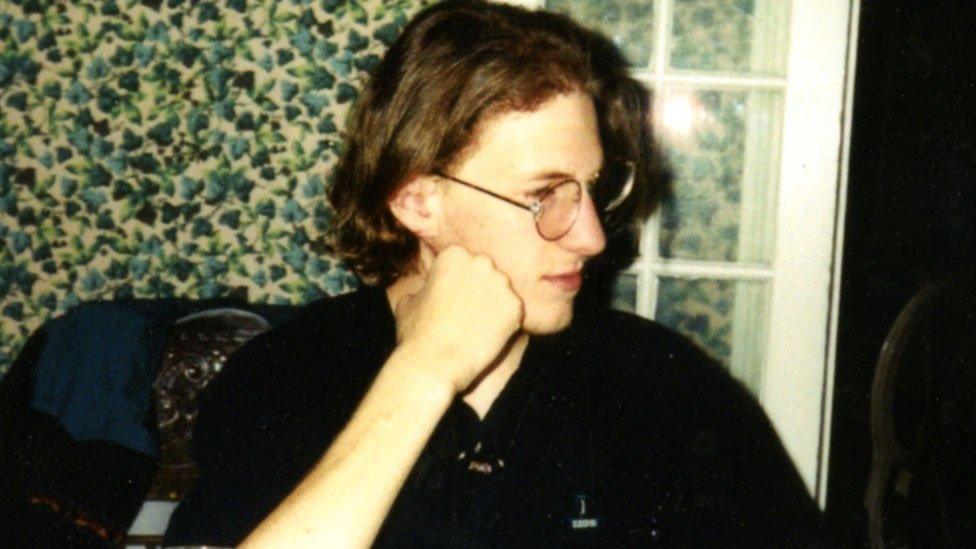
But she also had to struggle with her son's own suicide, and the firestorm that engulfed the Klebold family in the aftermath of Columbine.
It's only now that Sue Klebold is speaking publicly about what happened. Her book, A Mother's Reckoning, is a harrowing read. All the profits she makes from it will go to mental health charities.
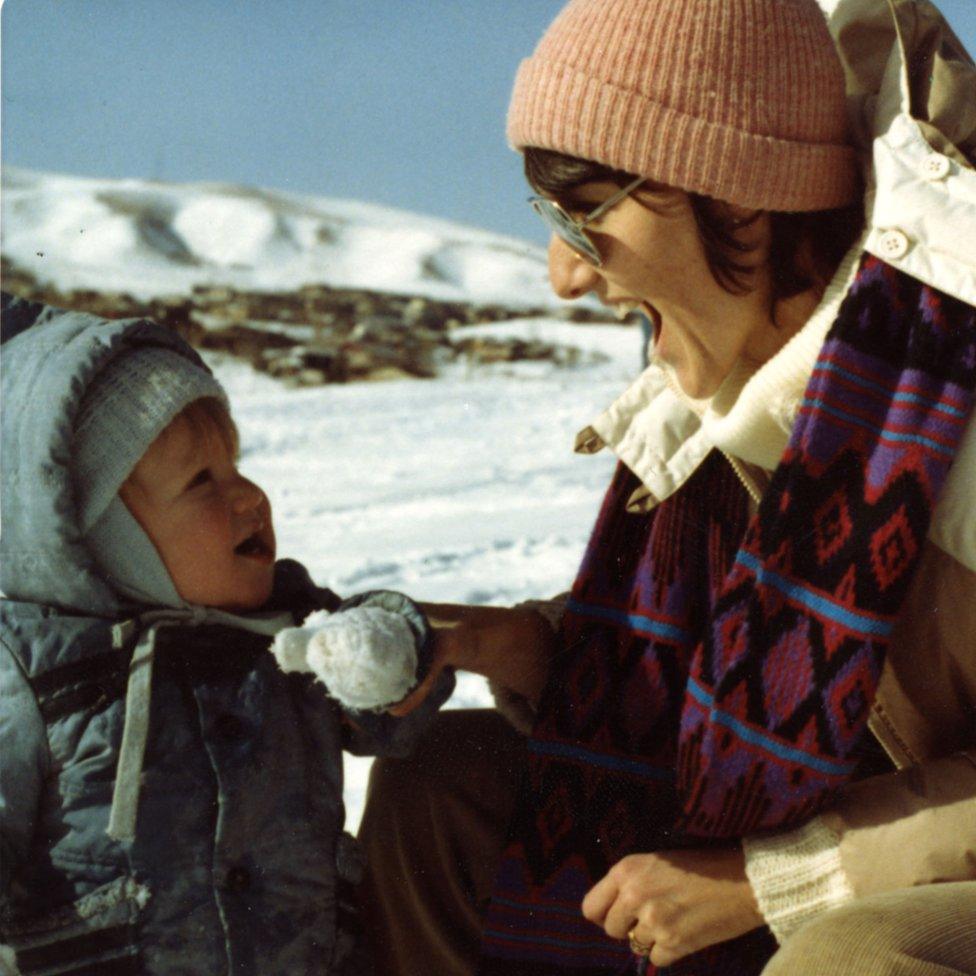
Sue and her then husband Tom only discovered six months after the killing that Dylan had been suicidal for two years, and since then Sue has devoted increasing time to helping other families whose children take their own lives, though few have done so in such extreme circumstances.
Columbine will forever be the shorthand for high school shootings in the US.

The Columbine attack
20 April 1999
Columbine High School in Colorado
Carried out by students Eric Harris (18) and Dylan Klebold (17)
Both took their own lives in the library of the school after the attack
12 students and one teacher were killed
21 others were injured
Subject of a documentary by Michael Moore in 2002, Bowling for Columbine

Sue doesn't shy away from hard questions. She takes me through the day of the massacre, and her initial reaction. For the first months she was in a really extreme state of denial.
"I didn't know that he was a killer. What I believed, at first, was that he was involved in something that had gone terribly wrong and people were hurt and killed. But in my mind, I could not accept him as a killer… until six months later when I actually saw the police report and they were able to say yes, this really occurred."
Sue's deep-set dark brown eyes betray her profound sadness. I asked her how she could cope with knowing that her son and Eric Harris had planned to kill everyone in Columbine High school, where the roll call was almost 2,000 pupils, and to that end they had amassed an arsenal of more than 90 bombs, guns and grenades.
"When I thought of that, and thought of the magnitude… I really didn't think I was going to live through it."
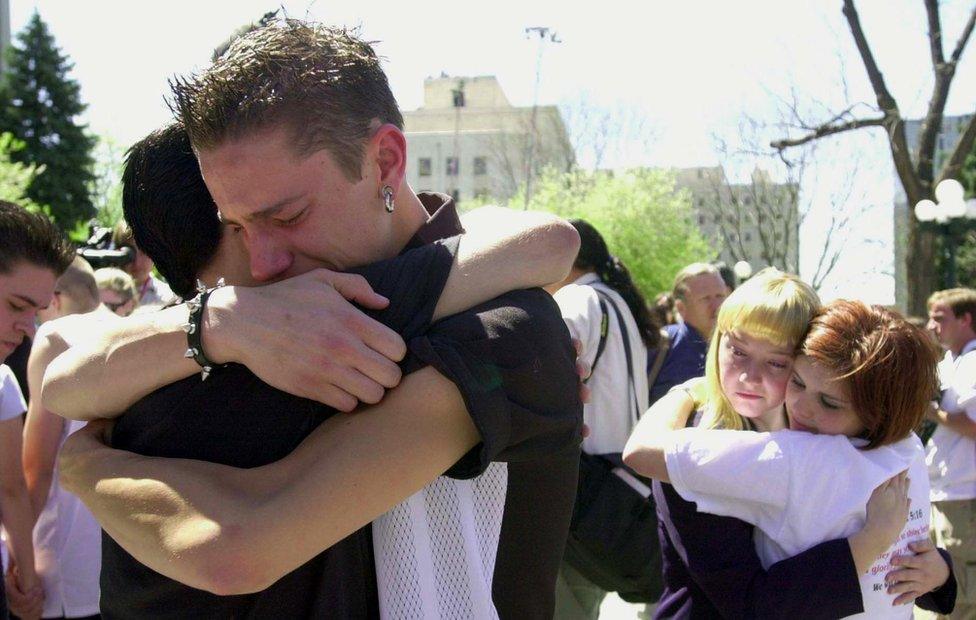
In her book Sue writes that it would have been better for the world had Dylan not been born - but not for her.
"When I think about what he did to other people, the lives he took, the trauma that he caused - for even the people who lived through this event and will have trauma for the rest of their lives - or who lost siblings or friends in this incident, there is no measuring that or quantifying it."
"I know it is terribly hard for me to even talk about my love for Dylan, for them to even hear me say that. But he was my son and knowing him did enrich my life and I loved him and he brought joy to me when he was alive. And since his death I have found meaning in life in trying to find answers to understand why this happened and how this terrible thing came about."
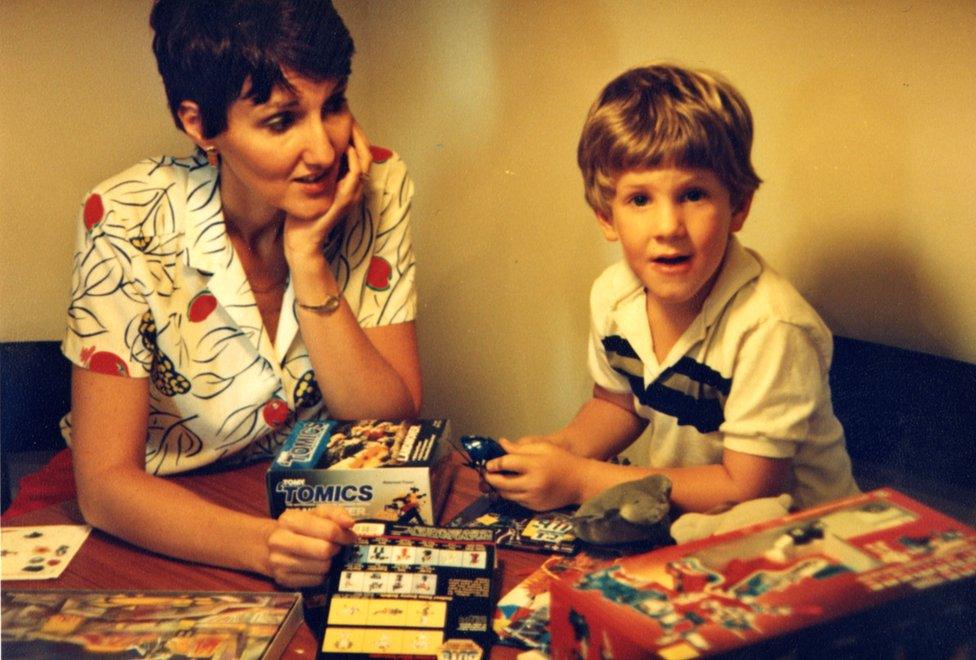
Sue described how on the morning of the massacre when it was still dark, and the house was black, her son, usually a reluctant early riser, thundered down the stairs, past her bedroom, right to the front door.
"I couldn't see him but all I heard him say was 'bye', and then he slammed the door and left."
In her book she writes that she was startled by the harshness in his voice. She and her husband Tom decided he would talk to her son that evening to find out if something was wrong. Of course, they never saw him again.
I asked her what she wished she had done that morning.
"I wish I had just tackled him and just said: 'Sit down. You're not going anywhere. We're gonna talk.'"
Kirsty Wark's interview with Sue Klebold will be broadcast on BBC Newsnight on Monday 15 February at 22:30 GMT on BBC Two
A longer version Columbine: A Killer in the Family is next weekend on Our World on the BBC News Channel and BBC World News (click for transmission times)